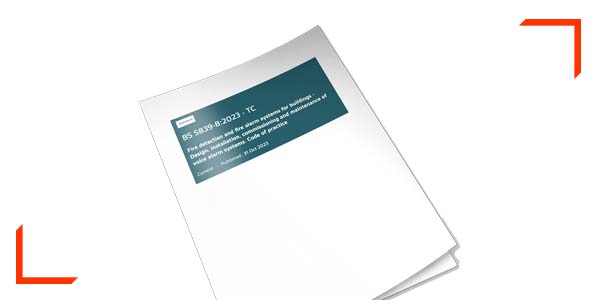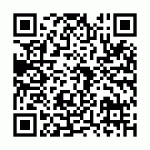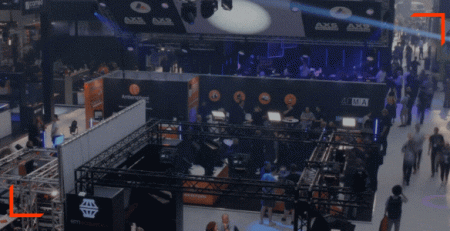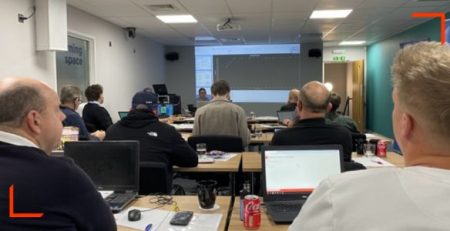Reminder: BS 5839-8:2023 Standard Available to Order
Reminder: BS 5839-8:2023 Standard Available to Order
We’d like to take this opportunity to remind members that the BSi standard for Voice Alarms systems is available to order at a discounted rate from ISCVE.
BS 5839-8:2023 – Fire detection and fire alarm systems for buildings. Design, installation, commissioning and maintenance of voice alarm systems. Code of practice.
If you would like to purchase the standard, as an ISCVE member you will benefit from a discounted price of £250.00 (rather than £314.00 standard price) for the electronic version (PDF), if ISCVE order it on your behalf.
Attendees of ISCVE’s Voice Alarm Training courses can order at a further discounted rate of £235.00 – contact us for the discount code before you order!
If you would like to go ahead and order, please email ros@iscve.org.uk or click the button below, or follow the QR code;
Who is BS 5839-8 – Voice alarm systems for?
Designers, manufacturers and suppliers of voice alarm systems
Alarm receiving centres (ARCs)
Architects and building professionals
Fire and health and safety departments
Installers and others responsible for implementing fire precautions
What does BS 5839-8 – Voice alarm systems cover?
BS 5839-8 gives recommendations for the design, installation, commissioning and maintenance of voice alarm systems that automatically broadcast speech or warning tones, in response to signals from their associated fire detection and fire alarm systems.
BS 5839-8 also covers systems that include a manual facility for the transmission of live emergency announcements as well as automatically generated messages for emergency purposes.
Amendments to the existing standard include;
Editorial Changes
- The document has undergone restructuring to the new BSI guidance.
- The clause on networked systems has been changed to “distributed systems”
- The term “acoustically distinguishable area (a.d.a.)” has been amended to “acoustically distinguishable space (a.d.s)”
Accessibility Changes
- A new recommendation addressing the need to limit the level of a monitoring tone.
- A new recommendation to provide a warning for people who are D/deaf or have a hearing impairment.
- A new recommendation on warning devices for people who are D/deaf or have a hearing impairment.
- A new clause with recommendations for assistive listening systems has been introduced.
Technical Changes
- A new recommendation for audio inputs (e.g. telephones, smartphones) are not to be used.
- A new recommendation has been added for Type V3, V4 and V5 systems regarding amplifier provision
- A new recommendation about voice alarm loudspeakers and disabled refuges.
- There is an explanation on the rear cover on ceiling loudspeakers.
- A new recommendation on loudspeakers that require equalisation to achieve BS EN 54-24 certification.
- A new recommendation on voice sounders
- The clause relating to emergency message generators has been deleted.
- The equation for calculating I2 for standby batteries has been simplified.
- New recommendations on the level of the attention-drawing signal.
- A new recommendation on active noise cancellation.
- The clause on the measurement of intelligibility has been substantially rewritten.
- A new clause on cybersecurity has been included.
Changes to Verification and Maintenance
- The clause on verification has been simplified.
- Clarification that the maintainer of the VAS is not necessarily competent in electro-acoustic design for the corrective works.
- A new recommendation states that any ANS function is to be checked for correct operation.
- A new recommendation on ANS used for emergency broadcasts.
- A new recommendation on loudspeaker circuit impedance comparison.
- A new recommendation on subjective intelligibility testing.
Once you have paid for your copy of the Standard, a unique watermarked version will be order on your behalf and forwarded to you.











